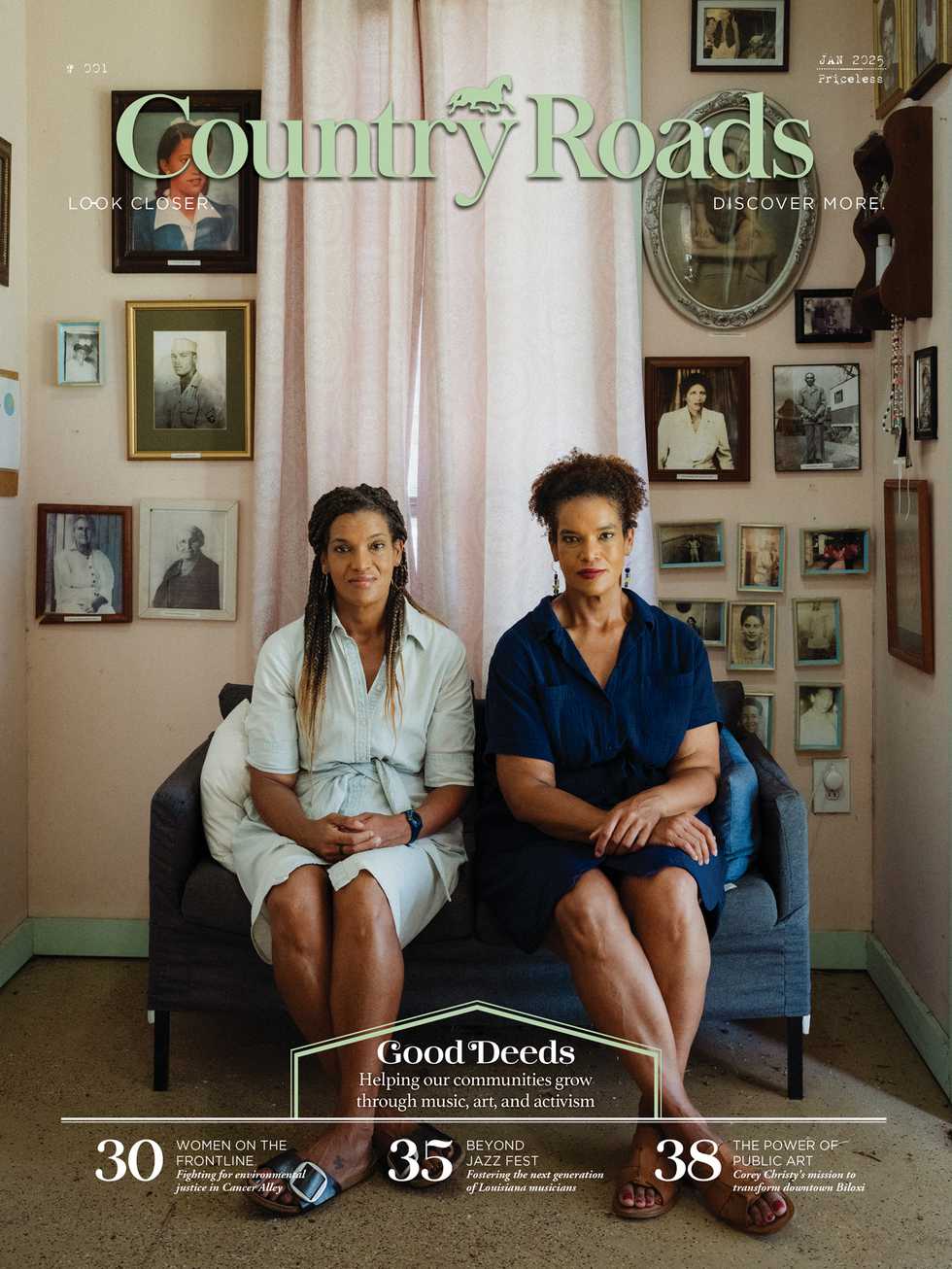Cedric Watson’s music is not simply an homage to Butch Cage. It’s as if his soul has been reincarnated and continues to evolve.
Here is how musicologist Dr. Harry Oster portrayed Butch Cage at the fiddle:
His face crinkling in a warmly infectious grin, he holds the fiddle on his chest in the old-time country style; with his hand about three inches from the end of the bow, he saws away with wicked syncopation, waving the fiddle as he plays and stamping both feet with crashing intensity for the basic beat.
Dr. Oster wrote this in the opening chapter of his 1969 tome Living Country Blues. As one of thirteen children raised by a single African-American woman in the dawn of the twentieth century, Cage had nothing but music.
“All my folks was some sort of musician. I had sisters play accordeen, an’ another brother played the fife,” he tells Dr. Oster. “My mother was a good songster, an’ she was the best dancer in Franklin County.”
He learned the fiddle from two older black fiddlers,
Frank Felters and Ole Man Carol Williams, two men whose music is now lost to the ages. Cage’s music might not have made it to modernity had Oster not recorded him and his friend Willie Thomas in Cage’s backyard in Zachary in 1959. There, Oster encountered “a notable find—a great representative of the now virtually extinct 19th century black fiddle tradition,” as he stated in the liner notes of his Arhoolie collection of recordings. But then, Cage’s fiddling is a thing out of time.
Butch Cage saws at his instrument with the same vigor one suspects he had cutting railroad ties as a kid when the crops grew thin. Even among the wilds of fifties and sixties folk music it stands out as primal and vital music. The whine of his strings during “44 Blues” on The Folk Music of the Newport Folk Festival 1959-60 Vol. 1 bites through the air like a wasp, making Pete Seeger’s “Cumberland Mountain Bear Chase” sound like a visit to the zoo by comparison. “44 Blues” is desperate, arrogant, unshackled by time and circumstance.
Butch Cage certainly wasn't the only African-American blues musican to take up the fiddle in the cause of the blues. Big Bill Broonzy was as adept on violin as on guitar, as was Lonnie Johnson and Clarence "Gatemouth" Brown. With a little further digging, one can find some collections drawn from old 78 RPM records featuring Peg Leg Howell doing the “Beaver Slide Rag” or Henry Sims’ “Tell Me Man Blues” recorded with guitarist Charley Patton, but the instrument fell out of favor as the blues made the transition from country music to city music. Fiddles invoked country connotations that the sophistication of contemporary blues and R&B sought to supplant, so by and large, the fiddle was largely dropped from the blues arsenal.
Then along came Cedric Watson, the Creole Fiddler.
It is tempting to peg Watson’s music as zydeco as it scans that way—a sidewinder beat, a mournful persistent accordion, lyrics in English and French. But like a number of his generation’s fellow zydeco practitioners, he is open to the world as it flows through his music and his instruments—one of which happens to be the fiddle.
Watson was born in San Felipe, Texas in 1983, surrounded by blues, zydeco, soul and hip-hop; but found himself in Lafayette, embracing the Creole music traditions of Cajun and zydeco music and honing his chops to join the Pine Leaf Boys. He eventually left the group in 2006 to form his own, Bijou Creole, and to chart his own course with the fiddle and accordion music of South Louisiana but also pulling from blues and world music, creating something of a place—and yet beyond it.
Watson's first record for Lafayette's Valcour records, Goin' Down to Louisiana, a duo record with accordionist Corey Ledet, is as much a jump blues record as it is anything. It speaks to the great Clifton Chenier’s blues records where his backwoods boogie met Delta blues longing in the most natural way. Watson recorded two more records for Valcour, Cedric Watson in 2008, L'Esprit Creole in 2010, as well as 2009's Homage Au Passe with his old bandmates from Pine Leaf Boys. With each recording, Watson's style grows more mercurial, pulling in Haitian Rara rhythms and the melodies of the African kora (a plucked harp with a large sound chamber, traditionally crafted by stretching skins over a dried cassava gourd) to help expand what his fiddle and accordion have to say.
His most recent album, the self-produced Le Soleil Est Levé, draws on the fife and drum traditions of north Mississippi blues, their martial rhythms lending Watson's accordion (leaning heavier on it than the fiddle) a feral, field recording quality. It all comes together though, on the fiddle blues waltz "I'll Live Till I Die." The band sashays through a haunting blues melody centered on Watson's stringwork, lent a spectral air from the kora. What it achieves is that same allure as Butch Cage's fiddle; the vibrations of four taut little strings evoking a world that you might never know existed.
DETAILS. DETAILS. DETAILS.
Cedric Watson appears at the Baton Rouge Blues Festival, on Saturday, April 14 in downtown Baton Rouge. The event is free and open to the public. The full lineup of events can be found at batonrougebluesfestival.org.
More information on Cedric Watson at cedricwatson.com. More information on Butch Cage from Arhoolie Records at arhoolie.com.
Author of the recently released book Louisiana Saturday Night, Alex Cook will also be at the fest, interviewing Swamp Pop legend Johnnie Allan for Backstage at the Blues Festival.

